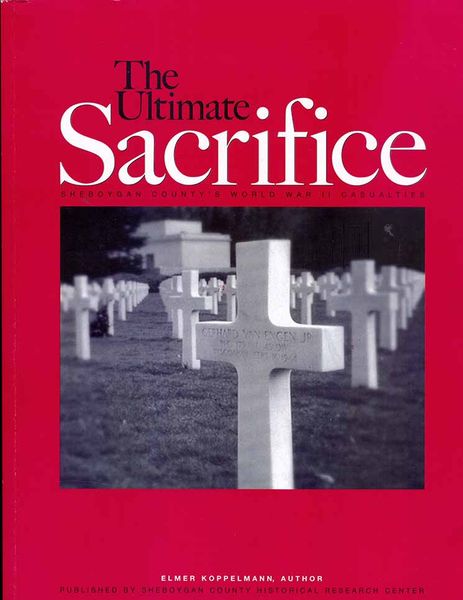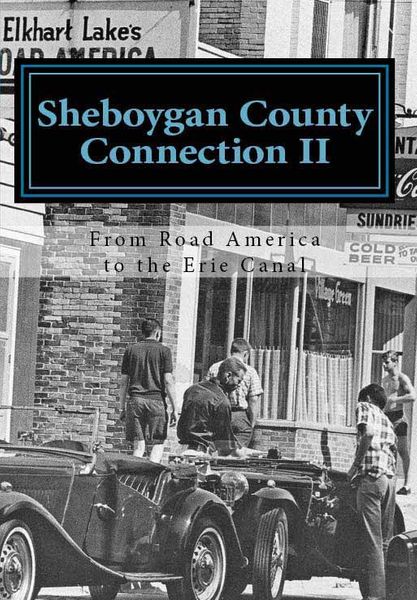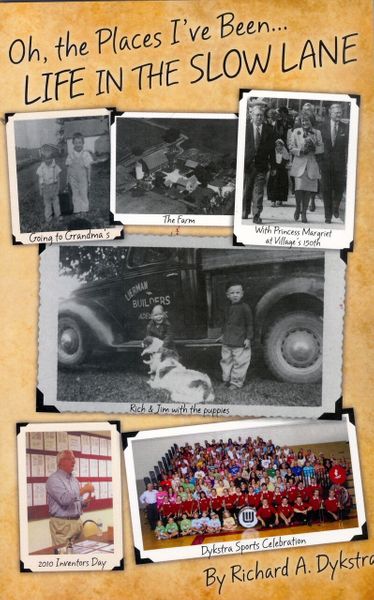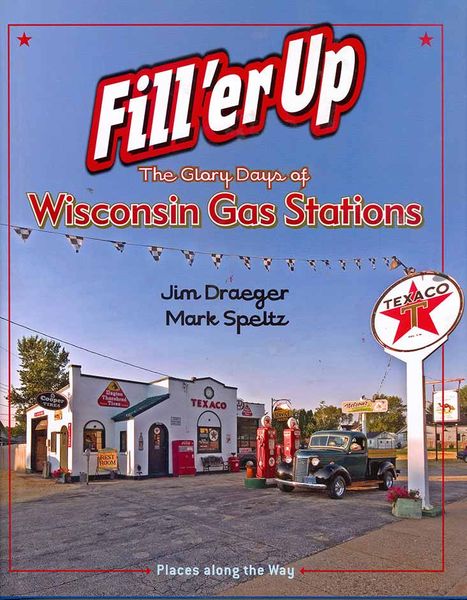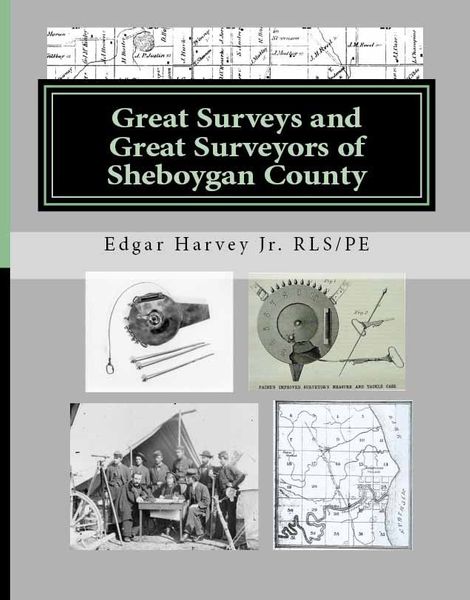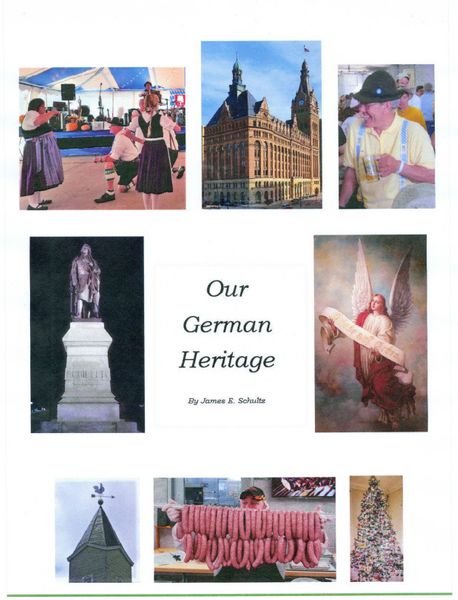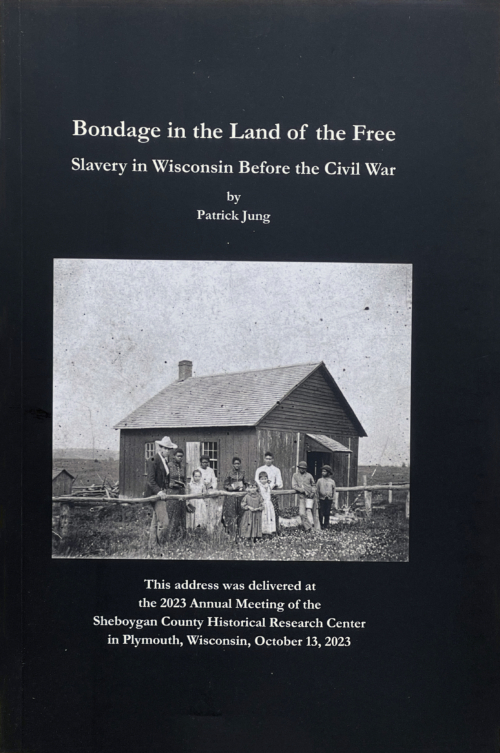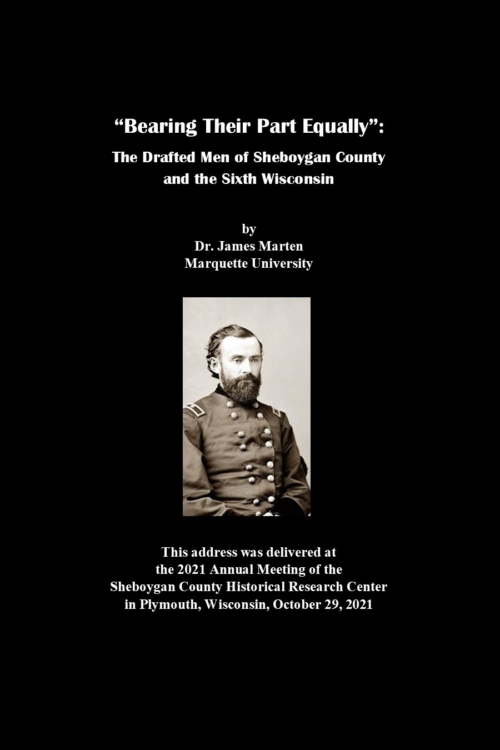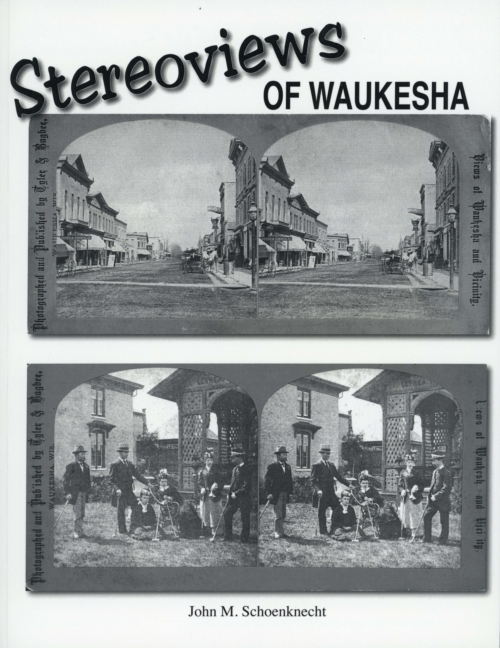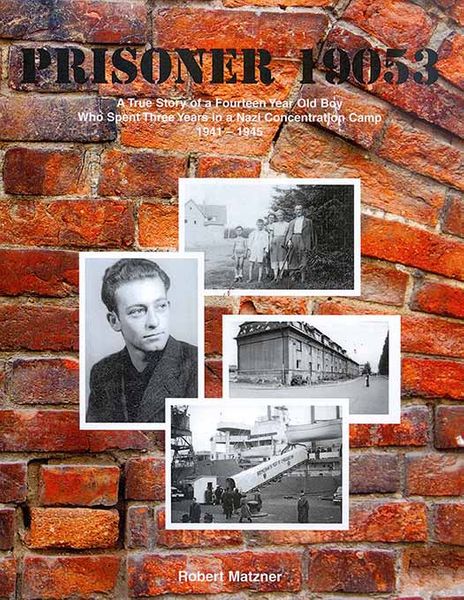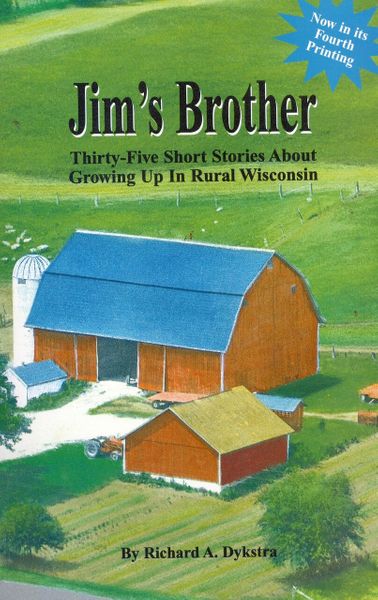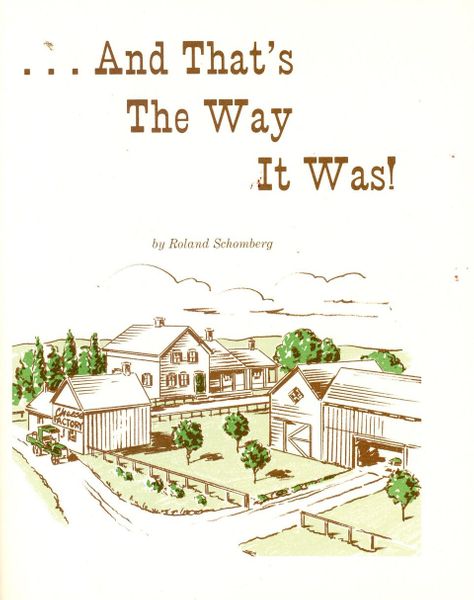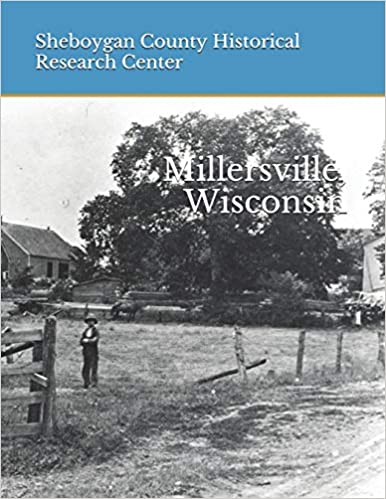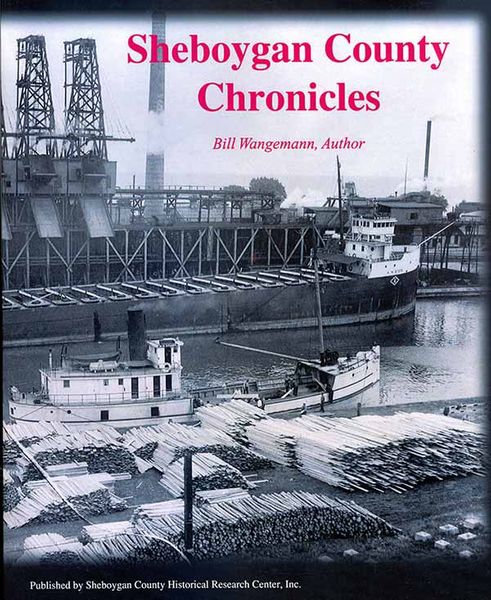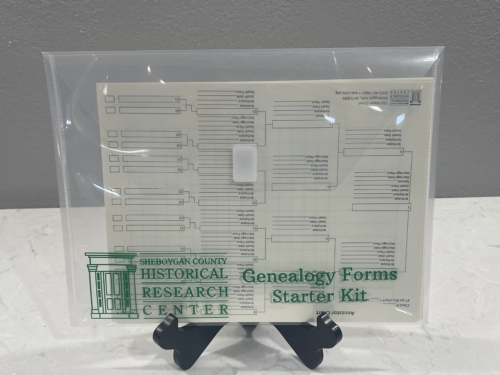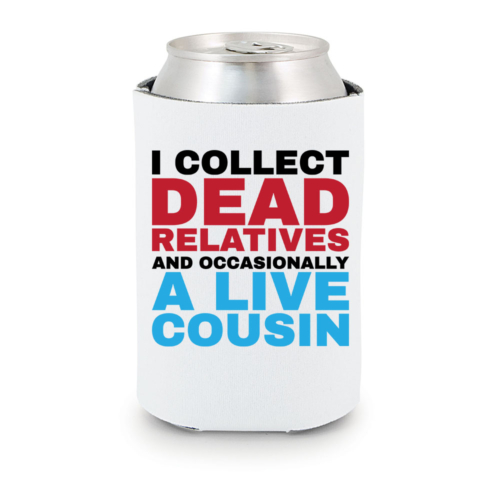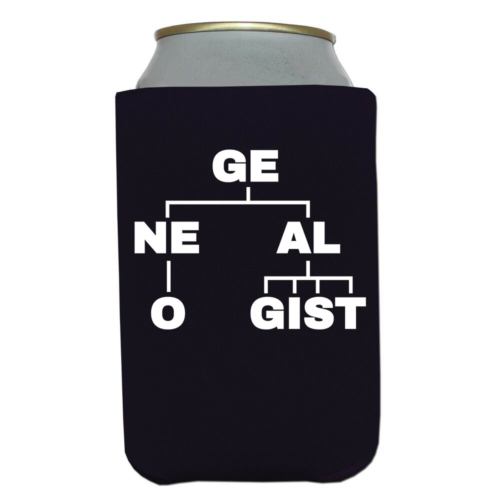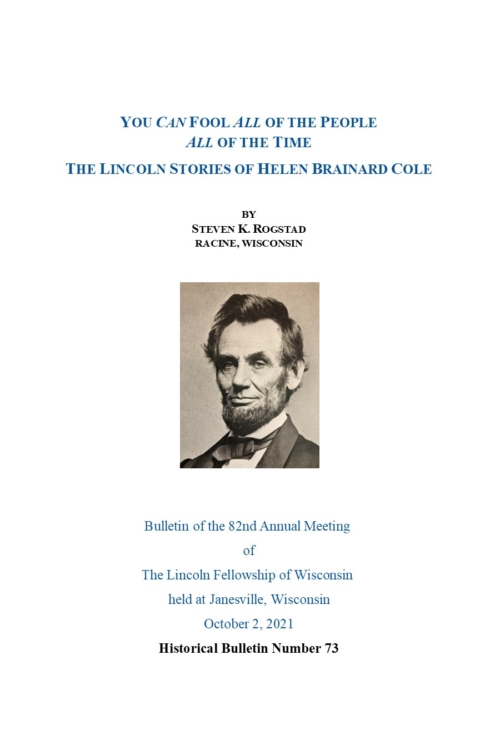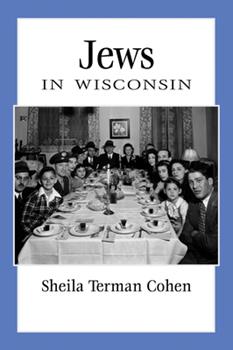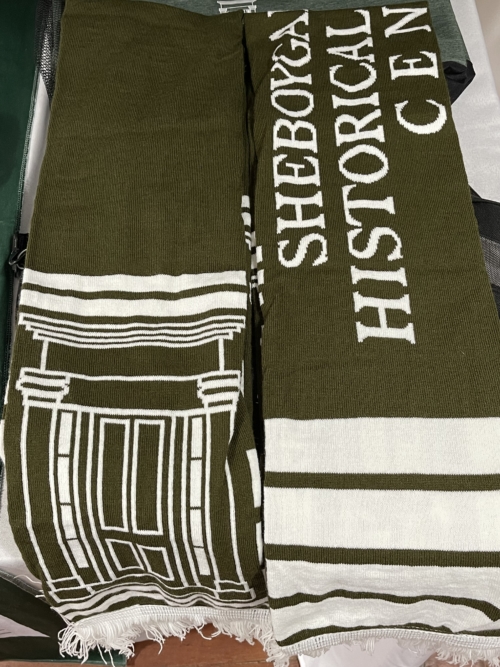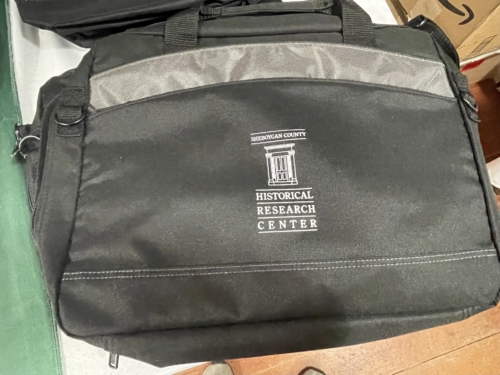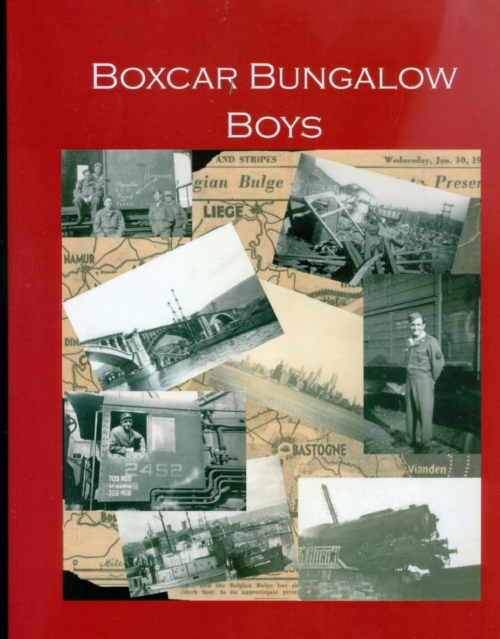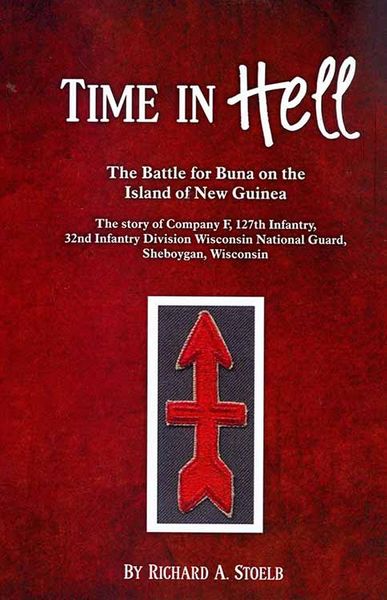-
By Emma Hermann Thieme NO LONGER AVAILABLE -- OUT OF PRINT Sophie Hermann Knop was born and raised in Schaefer, Russia, a German-Russian community along the Volga River. In 1923, when she was 18 years old, Sophie traveled to Sheboygan, Wisconsin, where Gottlieb Hermann, had been living since 1912. During their long separation, Sophie endured great difficulties, including the Russian Revolution and the upheavals and famine that followed in its wake. Sophie willingly shared detailed descriptions of her life in Russia. Those “bits and pieces” follow a brief history of German migration to the Volga River area of Russia.
-
Sale!By Elmer Koppelmann The citizens of Sheboygan County have always gone above and beyond the call of duty in times of military need; the Second World War was no different. Some 3000 young men and women served during World War II on all fronts and in all capacities from this county alone. Recorded here, after eighteen months of searches and interviews, are vignettes of 234 soldiers- one young woman and 233 young men from the Sheboygan County area who lost their lives. Four others- Joseph J. Archbold, Elmer C. Prahl, Roland Thompson, and Douglas Thornberg are noted as making the ultimate sacrifice, but regrettably, no information was found other than their names.
-
By Janice Hildebrand This book is a tribute to the City of Sheboygan in its sesquicentennial year 2003. The area that is now the city was settled years before 1853, but the city was not chartered until then. This book documents 45 men and women who were important in Sheboygan's early years. Each bio contains one or more photos. 2016 reprint.
-
This is the second volume in a series. It contains more than fifty stories about Sheboygan County citizens and the amazing ways they participated in important history. Topics range from the 1950s bomb shelter scare to the opening of Road America and Clif Tufte to the opening of the Erie Canal in the 1830s.
-
By Rich Dykstra Rich is back with another series of short stories about life in the 1950s and 1960s. Life in the Slow Lane deals with seemingly mundane but very memorable activities that Dykstra participated in as a child – shopping trips to Sheboygan when it took a week or more of planning, going to the outhouse, Friday nights in Sheboygan Falls capped off with a stop at Bob’s Lunch, a one-room school fair, Sundays at Grandma’s, the anxious anticipation of a first Milwaukee Braves game, life in the era of polio and something called Sunday Rules.
-
Sale!By Jim Draeger and Mark Speltz The authors visit 60 Wisconsin gas stations that are still standing today and chronicles the history of these humble yet ubiquitous buildings. The book tells the larger story of the gas station's place in automobile culture and its evolution in tandem with American history, as well as the stories of the individuals influenced by the gas stations in their lives.
-
By Edgar Harvey Jr.
This book deals with many of Ed Harvey’s predecessors as Sheboygan County Surveyors. Harvey, after years of research, found that they included men of great character, and others whom we could term “shysters”. They included some pretty unremarkable individuals and others of great genius. Although they were humble surveyors while they worked in Sheboygan County, some of these men invented great things, or were otherwise involved in major events which changed the history of the entire nation or the world. One man worked on the Brooklyn Bridge project. Another worked on the Panama Canal. At least two of these men prepared maps which shaped the boundaries of nations. With all the same care, the same men prepared surveys which depicted the boundaries of comparatively small, private properties in Sheboygan County; An interesting and fresh way of analyzing Sheboygan County History.
-
By James E. Schultz. More than a history about Schultz's great grandparents, this book features:
- threads of our German heritage, including food, wine and beer, language, religion, music, dance, and customs woven into the family history and indexed;
- sections devoted to “Why they came”, “Today’s German Attitudes”, and “People and Places”;
- a “Special Find” for each of the eight featured ancestors, a genealogical gem that I uncovered;
- a wide variety of church, government, military, personal, and other resources, with a list of 40 resources cataloged as an appendix; and,
- a section called “Challenges, Tips, and Surprises” that provides helpful pointers for finding information.
-
Sale!Wisconsin's 37, The Lives of Those Missing in Action in the Vietnam War. By Erin Miller with John B. Sharpless Foreword by Major General John D. "Don" Logeman (Ret.) The signing of the Paris Peace Accords in 1973 signified the end of the Vietnam War. American personnel returned home and the 591 Americans held captive in North Vietnam were released. Still, 2,646 individuals did not come home. Thirty-seven of those missing in action were from Wisconsin. Using the recollections of the soldiers' families, friends and fellow servicemen, the author tells the story of each man's life.
-
Sale!On a cold, cloudy evening, February 20, 1919, Zion Reformed Church in Sheboygan was reportedly "packed to the doors" to hear a concert. The highlight was to be a cantata performed by the Zion Choir, but the program listed them as "assisted" by a new entity: the Sheboygan Community Orchestra, led by John Schmidt, "who certainly needs no introduction," according to the anonymous review published the next day in the Sheboygan Press. In the months to follow, that body of players would be performing on their own, and by the time of their third concert they would be calling themselves the Sheboygan Symphony Orchestra. They are still the SSO, one hundred years after their founding in the fall of 1918: the oldest symphony orchestra still functioning in the state of Wisconsin. They have performed continuously, except for pauses during the Great Depression and in the midst of World War II; and though they were called the Sheboygan Civic (Symphony) Orchestra from 1936 to 1973, there has been a continuity in both personnel and musical vision, linking one generation to the next over a 100-year span.
-
Sale!By Robert Matzner Sheboygan resident, Robert Matzner, had a very important story to tell. Friend, Larry Vogel, helped him to put pen to paper. The result is Prisoner 19053, the true story of Matzner’s three years in Nazi concentration camps. Matzner, a native of Poland, lost most of his family to the Nazi’s Final Solution. He somehow survived the horror and came to the United States and Sheboygan with his family in 1949. Robert and Larry have written a remarkable document, a story full of sadness and hope which will touch all readers. The introduction, written by Robert’s son, Murray, is a poignant tribute and a great beginning to Prisoner 19053.
-
By Richard A. Dykstra Thirty-five heartwarming stories about growing up in rural Wisconsin during the 1950s and 1960s.
-
Sale!By Roland Schomberg The stories for "...And That's the Way it Was" were inspired by Schomberg’s parents' life on their Sheboygan County family farm. Though not a literary masterpiece, the hand-written two-page chronicle of events, sprinkled with bits of his own philosophy, provided most revealing and interesting reading for the author. Reflecting on his part in the family history, he resolved to leave a similar legacy for his children and their offspring, so that they might be enlightened and amused by my narratives of life during Schomberg’s boyhood in Wisconsin.
-
Originally platted as the village of Rochester, Sheboygan Falls took shape in the late 1830s and 1840s. Settled by Yankee entrepreneurs from the East, "Sheboygan at the Falls" was a strong settlement from the beginning, surviving even the financial panic of 1837. A city of Greek Revival and Cream City brick architecture, Sheboygan Falls boasts two districts listed on the National Historic Register
-
Sale!Since 1961, Mayors of Sheboygan have been elected to four-year terms and considered full-time mayors. Prior to 1961, Mayors were considered part-time mayors because the men had other jobs, while also serving as mayor. Starting in 1853, the men who ran for mayor were nominated by local political parties which many times made things interesting. There were times when the man nominated for mayor did not want the job. In the 165 year history of Sheboygan, little has been done to honor the men who served as mayor. This book is an effort to pay tribute to them and accurately, yet simply, document their political tenure. The vignettes that follow are in alphabetical order for ease of organization. Filled with photos this includes biographies of all of the city of Sheboygan’s part-time and full-time mayors.
-
By Rick Kroos This autobiography by Rick Kroos takes you from his childhood home in the city of Sheboygan to Vietnam to Hong Kong, where he has lived most of his adult life. It is a wonderful and inspirational story from beginning to end.
-
By Millersville Historical Research Group
The history of the area dates back to 1846 when the first immigrants found their way along the Pigeon River and settled in the area. At first the two settlements were known as Howards and Mueller Villa, later becoming Howards Grove and Millersville.
But in 1967, the two communities incorporated as Howards Grove-Millersville, becoming Sheboygan County’s 10th village, the fourth largest. It also brought the village fame with its cumbersome 24-letter title, the longest in the state. Eventually, the city dropped Millersville and took Howards Grove as its proper name. This book follows the history of just the Millersville portion of the area.
-
Sheboygan County Connection III is the continuing record of the lives of Sheboygan County residents and their adventures in history. Read about dozens of historic happenings experienced by residents from the death and autopsy of victims of Ed Gein to the mysteries of Sheboygan's Rancho de las Flores, refugees of the Great Chicago Fire of 1871, the architect for the construction of the first Mormon Temple at Nauvoo, Illinois and history of outhouses. These stories ran in the Sheboygan Press from November 2015 to October 2016.
-
Sale!
By Bill Wangemann.
This is a collection of Sheboygan City Historian, Bill Wangemann’s 2005 and 2006 Sheboygan Press articles. Topics include Memories of Railroads, Electric Rail or the Interurbans, maritime stories- The Burning of the Niagara and The Mysterious Loss of the Pere Marquette 18, movies, TV and drive-in theater, Garton Toy and its fire, the stumpff fiddle and so much more.
-
Sale!By Floyd Odekirk and Adrian Falchion Waiting on DEROS: A Soldier’s Story could not have been accomplished without the efforts of a Veteran, a writer and the spirit of every soldier walking within the pages of this book. Floyd Odekirk pursued the emotional task of bringing back the images of his tour in Vietnam (1968-69) so that the writer, Adrian Falchion, could paint in all its vibrant and dark colors the truths of war. Following the completion of 19 stories, Floyd Odekirk offered the light to his Veteran Brothers Michael Bennett, David Higgins, Craig Johnson, Dale Moravec, Donald Burch, Patrick Callahan, Joseph DeAugustine, Robert Moneypenny, Daniel Michael Pruitt and Thomas Vojvodich who each shared a story for the sake of honoring other soldiers.
-
Sale!By Richard A. Stoelb This is the story of the men of Company F, 127th Infantry, 32nd Division, Wisconsin National Guard who left Sheboygan, Wisconsin for Federal Service on October 15, 1940. They would fight in the Battle for Buna on the island of New Guinea against the Japanese in World War II. Richard’s father, Roland Stoelb, was one of those soldiers who fought in the jungles of the Pacific to stop the Japanese during World War II. Roland along with dozens of boys from Sheboygan spent their Time in Hell, many of them making the ultimate sacrifice. Richard’s story personalizes the fight in the Pacific and honors the boys from Sheboygan.


